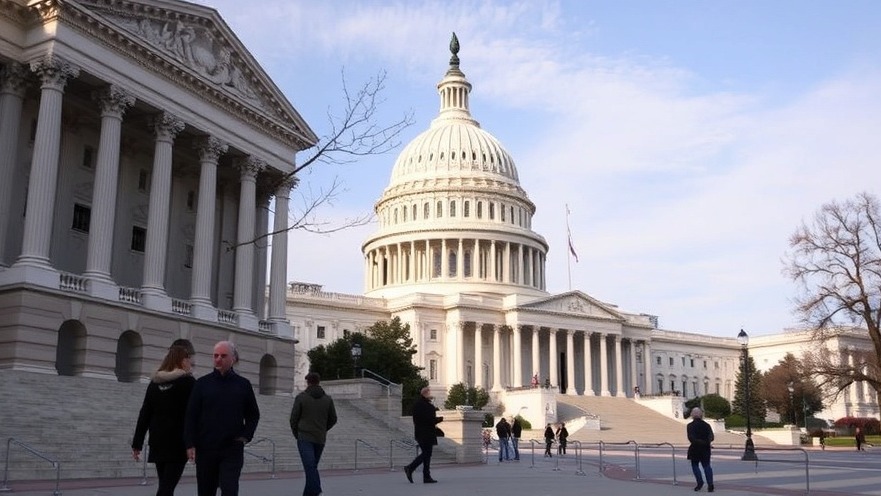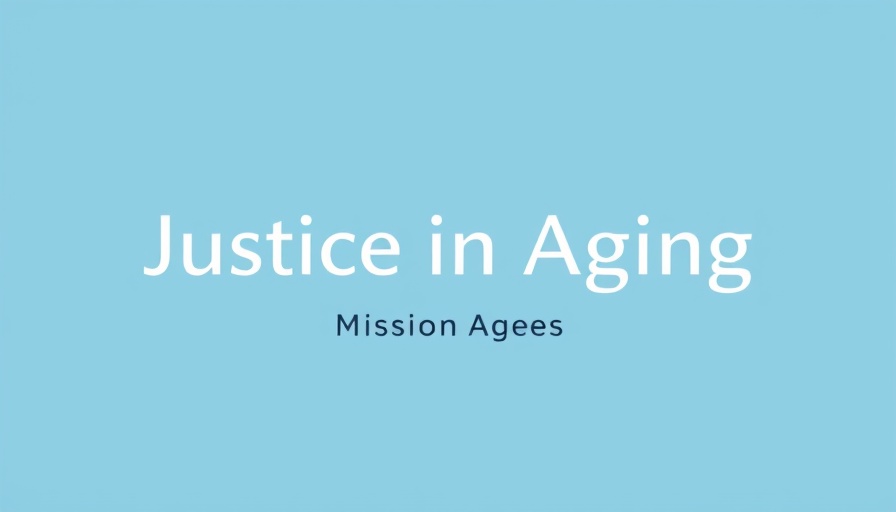
The Budget Battle: Understanding Medicaid's Future
In Washington, DC, the current debate around the 2025 fiscal year budget is shaping the future of Medicaid, a lifeline for millions of seniors and low-income individuals. As negotiations unfold, the implications are poised to potentially reshape vital services that keep many on the margins afloat. The President's budget proposal is under significant scrutiny and the stakes could not be higher.
Historical Context: The Most Drastic Cuts in History?
This year's budget reconciliation could result in the largest cuts to Medicaid in U.S. history. Proposed reductions could exceed an unprecedented $880 billion, dwarfing all previous efforts made in prior federal budget initiatives. This speaks to a critical crossroads where Congress must reconcile the needs of the most vulnerable populations against fiscal targets. Historical metrics indicate that these budget provisions could lead to almost 9 million individuals losing health coverage.
The Social Impact of Budget Cuts
The potential fallout from these budget cuts is alarming. Programs that extend health care to children, those with disabilities, and seniors are all at risk. For many families, Medicaid is not just an assistance program; it’s a lifeline that facilitates essential health care services, and the cuts threaten to remove coverage for many already struggling to maintain access to necessary medical care. Statistics show that Latino families could be disproportionately affected, with a significant segment relying on Medicaid for comprehensive health coverage. Reliable access to healthcare is essential to community health, leading to better quality of life and success in other socio-economic indicators.
The Importance of Medicaid for Seniors
Medicaid serves one in every five seniors in the U.S., providing vital supports for long-term care services. As Congress considers changes within the budget framework, it's essential for older adults to understand how proposed work requirements and tightened eligibility criteria could impair their access to health care. For seniors reliant on this system, this could mean increased out-of-pocket expenses or a complete loss of services.
What You Can Do: Mobilizing for Change
As the debate heats up, advocacy plays a crucial role. Organizations like Justice in Aging urge the public to take action, particularly to connect with lawmakers regarding the critical need to protect Medicaid funding. Activism can take many forms, from signing petitions to mobilizing within community organizations. Any advocacy effort shared can make a difference in influencing policymakers. Right now, signing on to maintain the CARES Act’s 30-day eviction notice requirement is critical—the deadline falls soon, and every voice counts.
Future Predictions: Preparing for Impacts
Looking ahead, should the budget cuts pass as they are currently proposed, the ramifications will extend beyond immediate health concerns. Predictably, this could lead to increased rates of homelessness, greater strain on local health care systems, and an uptick in uninsured populations, reversing years of progress in extending health care access. Understanding the potential challenges will be essential for seniors and advocates alike as the situation evolves.
Final Thoughts: The Urgent Need for Advocacy
As discussions continue in DC, the intersection of policy and human impact highlights the need for informed action. Protecting Medicaid isn't merely a budgetary issue; it’s about securing the health and dignity of millions of Americans. The potential cuts stand to strip essential lifelines away from those who most need them. The call to action is clear: mobilize, advocate, and ensure that the voices of seniors and vulnerable populations resonate loud and clear in legislative discussions.
 Add Row
Add Row  Add
Add 




 Add Row
Add Row  Add
Add 

Write A Comment